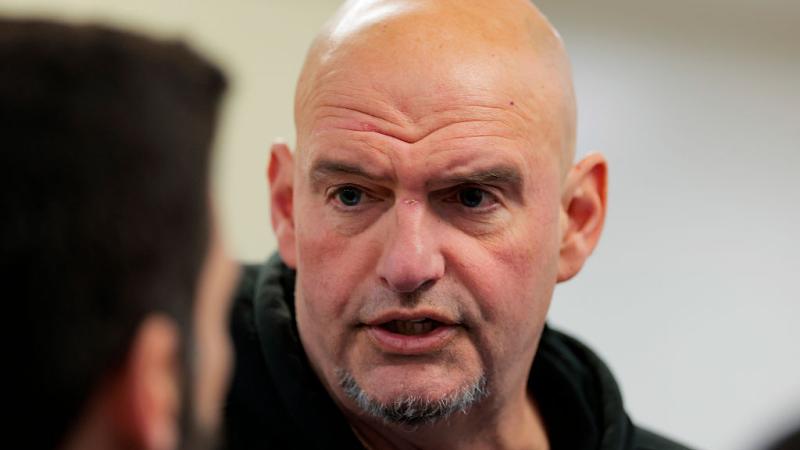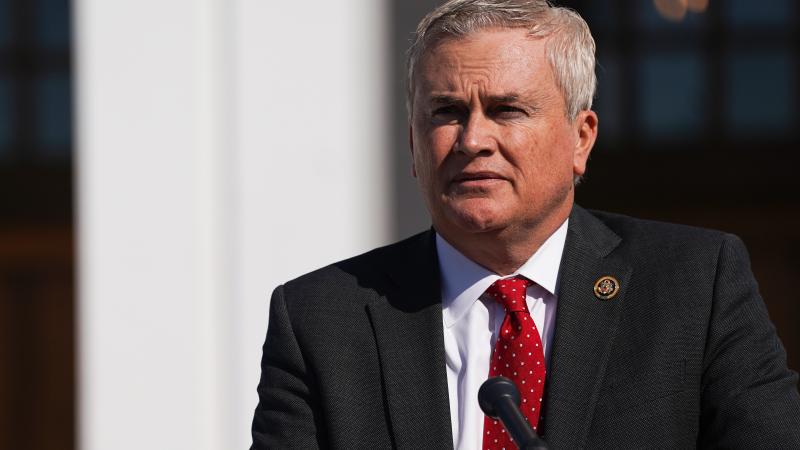Early House GOP efforts to resize government through appropriations target State, Energy
Conservative Freedom Caucus efforts are on a collision course with the Biden White House.
The conservative House Freedom Caucus has begun its tedious campaign to force the government to shrink through the 2024 appropriations process, with an early focus on foreign aid, taxpayer-funded media, green energy and other favorite liberal causes.
And that is making the Energy and State Departments favorite targets while putting the House GOP on a collision course with the Biden White House.
Under the caucus' budget, spending on the U.S. Agency for Global Media at the Department of State would be reduced from $798 million to $734 million, saving about $64 million next year.
The "Democracy Fund" under the State Department and the United States Agency for International Development (USAID) is currently receiving a budget of $355.7 million. The caucus' proposal would reduce the budget to $227.2 million, saving roughly $128.5 million.
U.S. Global Health Programs, also within the State Department, funds HIV and AIDS research. The caucus is proposing a savings of $675 million by reducing the current budget from $6.3 billion to $5.7 billion.
The $139.5 million Global Environment Facility at the Department of State would be eliminated under the proposal.
The National Endowment for Democracy, which is currently at $315 million would be reduced to $180 million, representing a savings of $135 million.
The Aquatic Decarbonization and the Algae-Related Bioenergy Technologies, both under the Department of Energy, would be eliminated under the proposal, resulting in savings of about $80 million.
Pennsylvania GOP Rep. Scott Perry, chairman of the House Freedom Caucus, said appropriators writing spending bills are often not familiar with programs within Cabinet agencies that continue to receive more funding each year.
"We don't have extra money to be researching whether we can make fuel out of algae, when we can just go up to Northwest Pennsylvania and pump it out of the ground and put it in our cars," said Perry. "That's what we're about."
In the Department of Agriculture, the Office of the Chief Information Officer currently receives $55.6 million. The caucus' spending proposal would result in savings of approximately $23.8 million.
The proposal would also reduce the Food and Drug Administration budget to fiscal year 2019 levels, which would save about $381 million.
The Agricultural Research Service currently receives a $1.4 billion budget from Congress. The caucus has proposed reducing it by $331 million.
In July, the White House warned the GOP-led House not to attempt to reduce domestic federal spending in appropriations bills below the levels in the debt ceiling deal that President Joe Biden and House Speaker Kevin McCarthy reached in late May.
The agreement included limited spending at fiscal year 2023 levels for one year and allowing only a 1% increase thereafter through 2025. The end of fiscal year 2023 appropriations on September 30 is fast approaching.
"House Republicans had an opportunity to engage in a productive, bipartisan appropriations process, but instead, with just over two months before the end of the fiscal year, are wasting time with partisan bills that cut domestic spending to levels well below the FRA [Federal Responsibility Act] agreement and endanger critical services for the American people," read a statement from the White House about how Biden would veto the Agriculture, Rural Development, Food and Drug Administration, and Related Agencies Appropriations Act of 2024.
The deficit for fiscal year 2022 was $1.38 trillion. So far into fiscal year 2023, the deficit is about $1.4 trillion. The national debt has hit $32.6 trillion.
Arizona GOP Rep. Andy Biggs, former chairman of the House Freedom Caucus, argued that domestic spending should be cut below fiscal year 2023 levels given the record deficit.
"They [debt limit negotiators] promised that they would hold the spending caps at '22 numbers, '22 levels. They're not. They're above the '22 levels for two years and then there's targets for the rest of the time," he said on the Just the News Not Noise TV program.
"When you start looking at this you say how could any Republican really say, 'yeah, this is a deal for us,'?" he added.
Perry said the U.S. government is heading toward spending about $2 trillion more than it collects in revenue, adding that appropriators realize members of the House Freedom Caucus aren't going to vote to continue fiscal year 2023 domestic spending levels into next year.
"As the clock keeps ticking, I think they're coming to the realization that many of us are just not going to vote to grow and increase spending, increase the government, increase this government that is increasingly weaponized against the American people," he said.
"The American people don't want to pay for these programs that are making their lives difficult. And so look, it's a long term process, they don't want to do it. Many of my colleagues don't really like to cut things around here on either side of the aisle. And I think as time goes on, they're coming to the realization that unless they're willing to do it, we're not going to be able to pass a bill," he added.
















